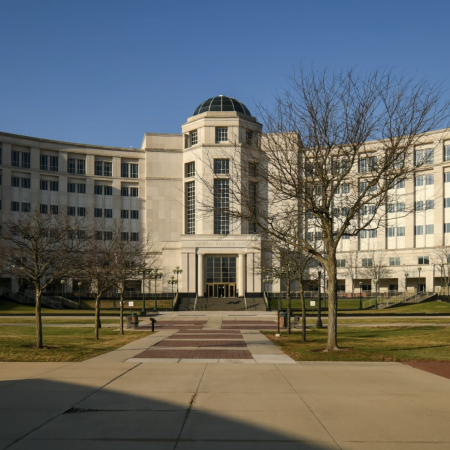Michigan Supreme Court rules in embryo custody case
A case involving a frozen embryo that’s at the center of a divorce dispute will not be heard by the Michigan Supreme Court. The court declined the case in an order released Friday.
The Supreme Court order leaves in place an appeals court decision that awarded the embryo to ex-husband David Markiewicz. The Michigan Court of Appeals ruled in December of 2023 that he would get custody because he has the closest biological connection to the embryo and should not be forced to have another child with his ex-wife, Sarah Markiewicz. The appeals court panel divided on the question, with one judge ruling the embryo should go to the ex-wife.
Sarah Markiewicz became pregnant three times through in vitro fertilization. The embryo at issue in the court case, as in Sarah’s other IVF pregnancies, was made with the ex-husband’s sperm, while the egg was donated by the ex-wife’s sister. The couple also has one child conceived naturally.
Sarah Markiewicz argued for possession of the frozen embryo because it could be her final opportunity to have another child. She also argued she was entitled to the embryo under the Michigan Reproductive Freedom for All amendment to the state constitution.
David Markiewicz said earlier he would either have the embryo destroyed or donated for scientific use if he won the case.
“My client is very happy and relieved that he can now put this chapter behind him,” said his attorney, Trish Haas, in an email to Michigan Public Radio. “His disposition of the pre-embryo will now be his personal choice.”
The Supreme Court order was unsigned, but Justice Brian Zahra wrote a concurring statement calling on the Legislature to enact standards to avoid future conflicts as IVF becomes more common.
“Broadly speaking, the primary issue is how the law should classify and treat human embryos, frozen or otherwise, which, at a minimum, have the potential to develop into autonomous human beings,” he wrote. “This question implicates some of the most perplexing debates in society, invoking deep-seated and conflicting beliefs about morality, ethics, religion, human life, and personal autonomy.”
Trusted, accurate, up-to-date.
WDET strives to make our journalism accessible to everyone. As a public media institution, we maintain our journalistic integrity through independent support from readers like you. If you value WDET as your source of news, music and conversation, please make a gift today. Donate today »The post Michigan Supreme Court rules in embryo custody case appeared first on WDET 101.9 FM.


